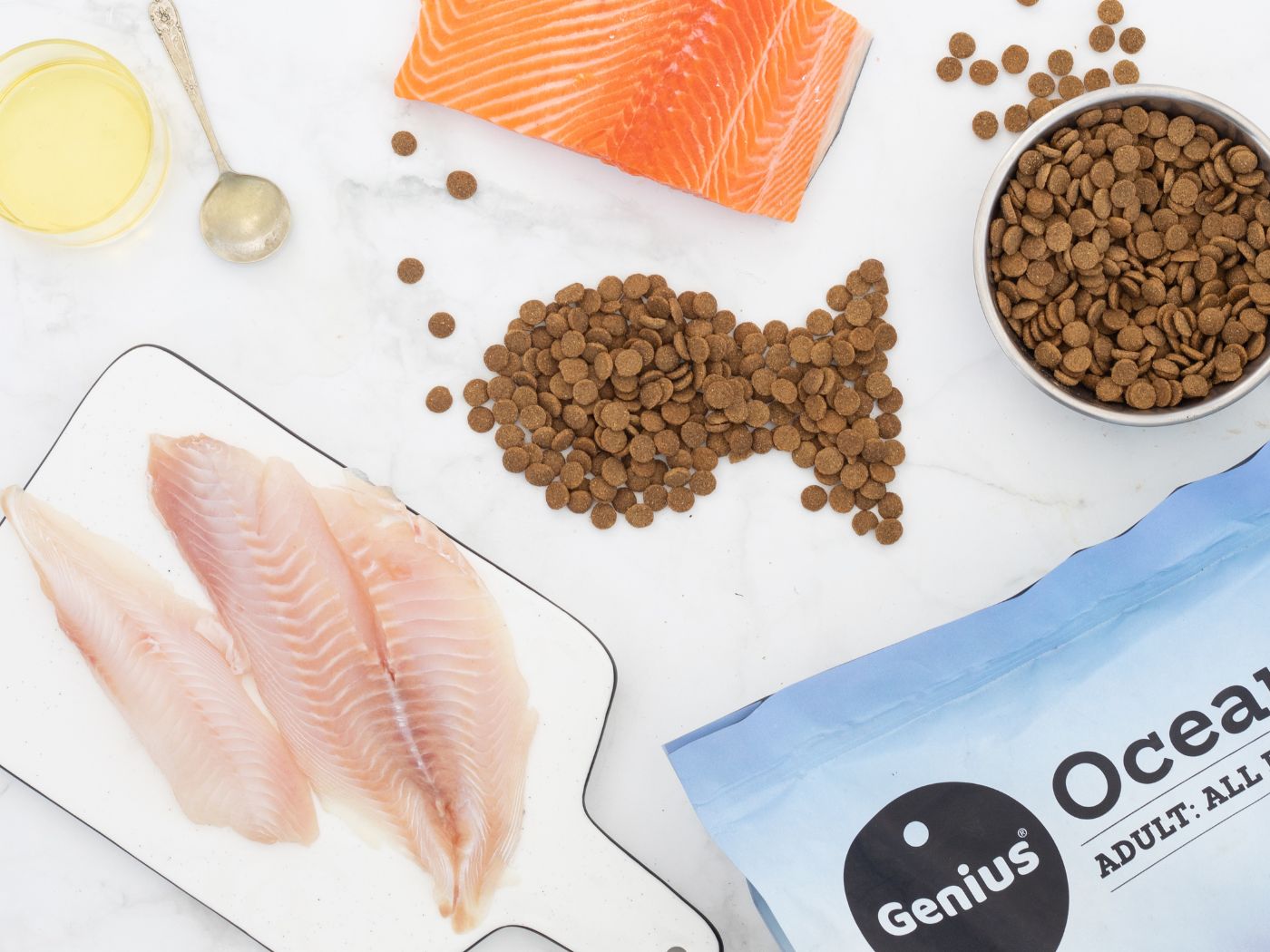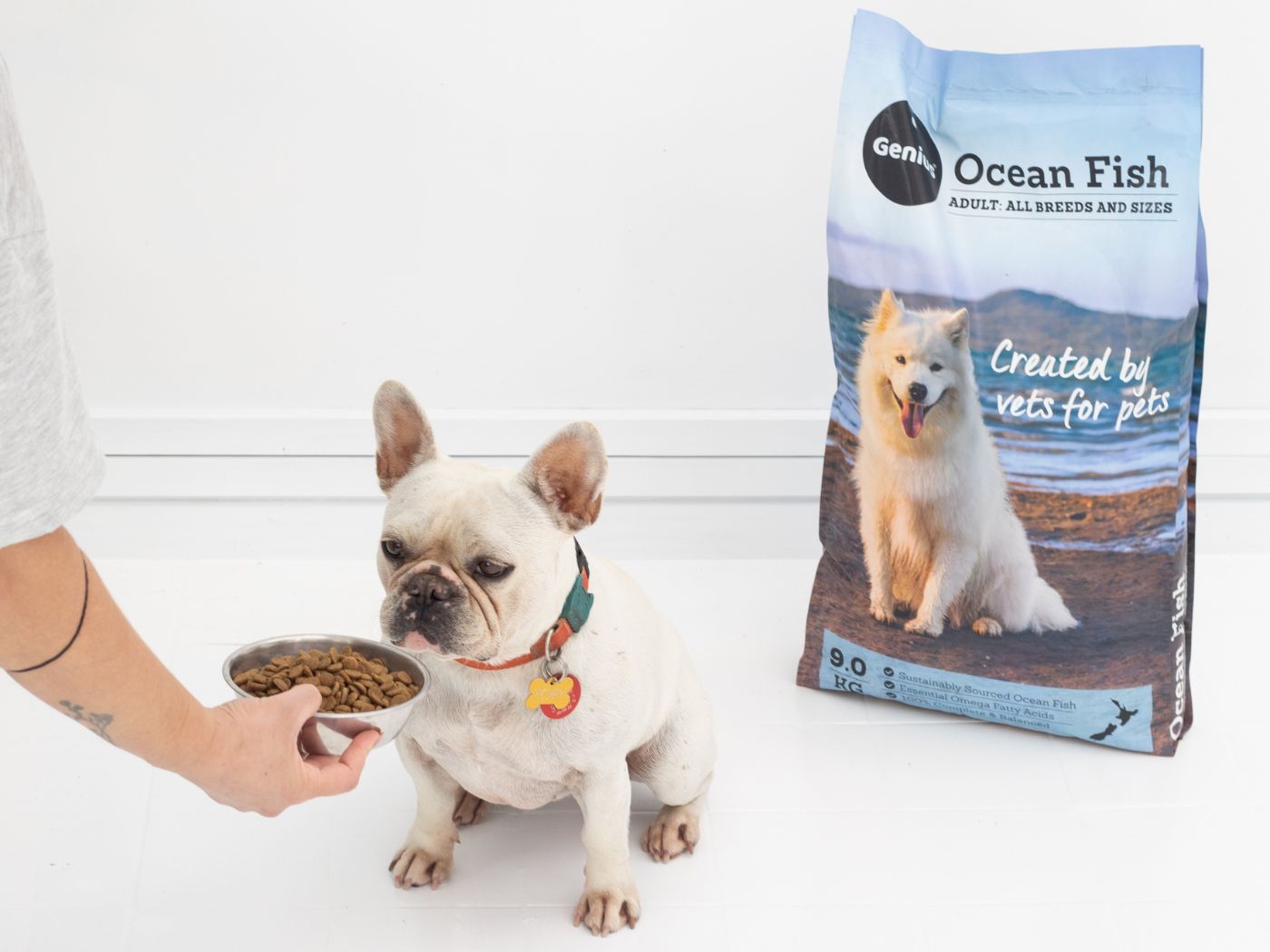With fresh New Zealand King Salmon as our first ingredient, followed by wild caught New Zealand fish meal, and with added fish oil, it is no surprise that our Ocean Fish diet is much higher in essential omega 3 fatty acids than most other dog foods. That makes it a great diet for older dogs who are slowing down a bit and it will help dogs with diagnosed osteoarthritis.
What are the requirements for Omega 3 fatty acids?
There is no minimum requirement for Omega 3 fatty acids in adult dog food, so most foods don’t report their levels. For growing pups the minimum requirement is 0.05% of eicosapentanoic acid (EPA) and docosahexanoic acid (DHA), so any All Life Stages food will have at least this amount. Any food with added fish oil will also have some level of these Omega 3's.
There are several prescription therapeutic diets on the market for dogs with arthritis. Hills Science Diet Joint Diet has been around the longest. From their online material the best I can tell is that it contains a total of EPA+DHA of 0.99%. Royal Canin Mobility is another option available in New Zealand. Again, their marketing is a bit vague, but it appears that their EPA+DHA levels are 1.03%.
We have had the EPA + DHA levels in our diet tested and we have an EPA+DHA of 0.28%. So it is around 1/3 that of the prescription therapeutic diets, but also signficantly higher than the minimum 0.05% for an All Life Stages food.
Is a therapeutic diet the best option for my dog?
Whilst the therapeutic diets are more convenient in terms of getting Omega 3’s into your dog, one of the downsides is that the amount they are ingesting can vary wildly depending on how much of the food your dog eats to maintain a healthy weight. Often with arthritic dogs you are trying very hard to keep them on the light side, so they can end up eating 20% less than the feeding recommendation on the packet and so are getting far less Omega 3 than recommended. And of course, you can’t increase the amount without adding extra weight to your dog.
The other disadvantage is that with these diets the rest of the ingredients aren’t always that great and they’re not New Zealand made.
What are the other options?
A standard diet that your dog is happy on, plus a good quality supplement that you can play around with the dose of, is potentially more beneficial than a therapeutic diet.
There are numerous joint supplements on the market right now and the quality can vary a lot. I’ll give you some options that I either have experience with personally or have had clients report back on favourably below.
With all of them it is important to note that it may take 8-12 weeks to notice their full effect and during that time if your dog’s pain is really bad then it is worthwhile having them on another pain relief option, such as a non steroidal antinflammatory (NSAID) and/or Synovan injections as well.
Supplement Options
In terms of supplements, here are my recommendations, what you choose may come down to price, availability and palatability for your dog:
Bomazeal Mobilize: this is one of the original green lipped mussel products on the market. Made in NZ, excellent quality and has some clinical studies behind it to back it up. Largish tablets, but pretty palatable for most dogs. If you were wanting something on the cheaper end but still efficacious, I would start here. I used it for years in my patients and it worked well. The only thing I don’t like is that they still put deer velvet in it, from an ethical point of view the harvesting of deer antler doesn't sit well with me now that we have better natural pain relief options.
Antinol: this is also Green Lipped Mussel. Although very pricey, it now seems to be thought of as the most clinically effective form of supplementation as it is extracted as an oil https://antinol.co.nz/
4Cyte: this was very popular for awhile, I used it on my old Labrador and it did seem to work quite well. Also, quite expensive.
Korure pets: This is a very new company that I came across recently as a customer told me about them and raved about their products. Their products do look good and they have powder and oil options.
Fish oils: You can of course just use a standard human fish oil supplement if this is palatable for your dog (the human ones are designed to be palatable to humans so not that fishy!) – the generally recommended dose rate is 75-100mg/kg of bodyweight of combined EPA/DHA. There are many fish oils on the market specifically for dogs now. They’re a bit variable in quality, I’d avoid any that have other oils mixed in, especially flax seed as this is mainly alphalinoleic acid (ALA) which is not useful for arthritis. The Nordic Naturals oil is generally regarded to be the best quality, but if you want a NZ made one then the Omega Plus salmon oil would be a good option too. Start with a low dose and work up as you can give them diarrhoea.
Other: deer velvet, chondroitin, MSM – avoid – not enough clinical evidence for any of these.
Other good sources of information
I highly recommend having a good look through the Canine Arthritis Management (CAM) website from the UK. It is very detailed and so could be quite overwhelming, but has heaps of really useful and practical advice on caring for dogs with arthritis and covers all treatment options from surgery through to home care.
They have lots of downloadable resources on this page here - the home assessment checklist is especially good.
And they do give a very short summary of supplements here: https://caninearthritis.co.uk/managing-arthritis/diet-and-nutrition/



